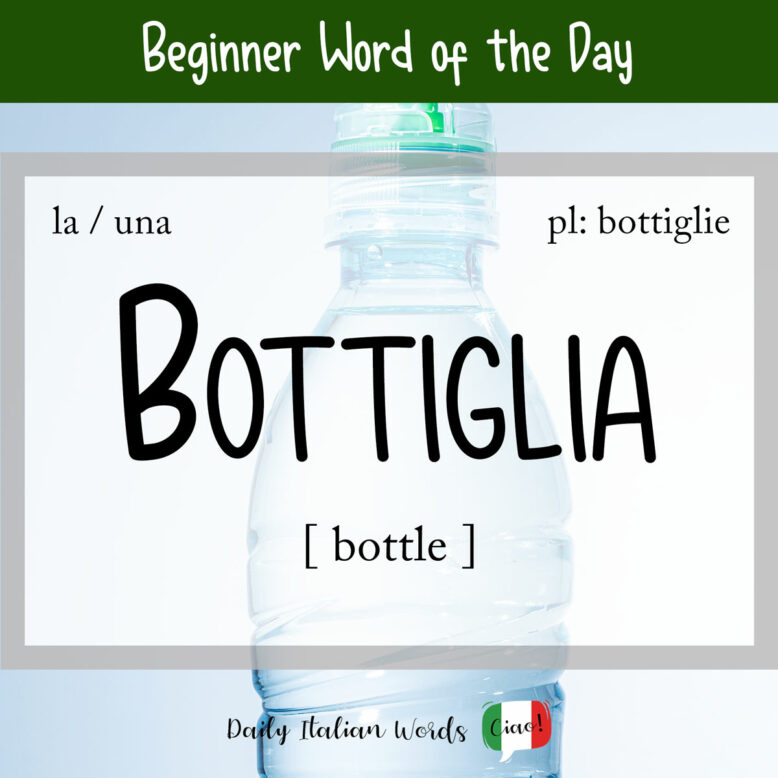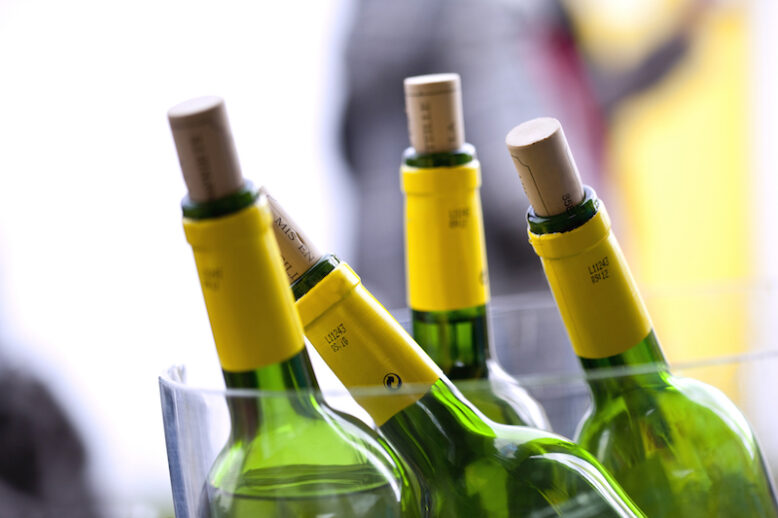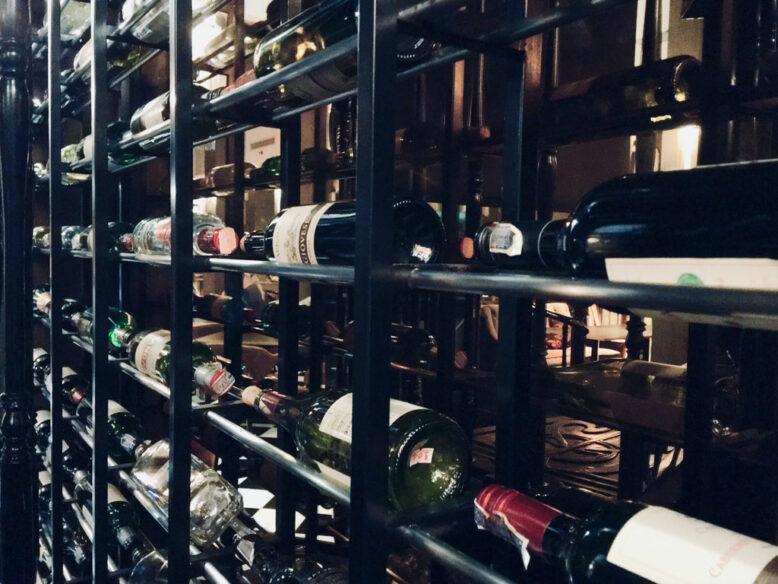The word for bottle in Italian is the similar-sounding bottiglia (feminine, plural: bottiglie). Unlike many Italian words which can be traced directly to Latin, bottiglia comes from the Spanish botilla meaning wine vessel.

Drinks generally come in two types: bottiglie di plastica (plastic bottles) or bottiglie di vetro (glass bottles). When talking about small bottles such as, for example, a bottle of perfume or ink, the diminutive bottiglietta is preferred.
Here are a few verbs you’ll often see paired with bottiglia:
- aprire una bottiglia = to open a bottle
- chiudere una bottiglia = to close a bottle
- stappare una bottiglia = to uncork a bottle
- turare / tappare una bottiglia = to cork a bottle
- riempire una bottiglia = to fill a bottle
- svuotare una bottiglia = to empty a bottle
- attaccarsi alla bottiglia = to hit the bottle
Puoi aprirmi questa bottiglia per favore? Non ci riesco.
Can you open this bottle for me please? I can’t do it.

If you say that something is in bottiglia or imbottigliato, the meaning becomes the adjective bottled. For example, bottled water would translate as acqua in bottiglia.
Note that imbottigliato also means to be stuck in traffic, or it can describe a situation where there is no possibility to react or manoeuvre.
In addition to denoting the vessel itself, bottiglia can also refer to its contents. For example, if you say bottiglia da vino (wine bottle), the subject in question is the bottle, whereas bottiglia di vino (bottle of wine) refers to the quantity of wine in the bottle. Invert the two words, and you get vino di bottiglia, the term for a high-quality aged wine.
Si è bevuto tutte le bottiglie di vino che erano rimaste giù in cantina!
He drank all the bottles of wine that were left down in the cellar!

The expression fondo di bottiglia (or more vulgarly culo di bottiglia) is the nickname given to fake precious stones, or low quality optics. It is also an idiomatic term for a pair of glasses with very thick lenses (occhiali a fondo di bottiglia).
If something has the characteristic colour of a wine bottle, you can describe it as being verde bottiglia (bottle green).
Finally, collo di bottiglia means bottleneck. It can also be used figuratively to talk about an obstacle that stops you from doing a job.
Heather Broster is a graduate with honours in linguistics from the University of Western Ontario. She is an aspiring polyglot, proficient in English and Italian, as well as Japanese, Welsh, and French to varying degrees of fluency. Originally from Toronto, Heather has resided in various countries, notably Italy for a period of six years. Her primary focus lies in the fields of language acquisition, education, and bilingual instruction.


